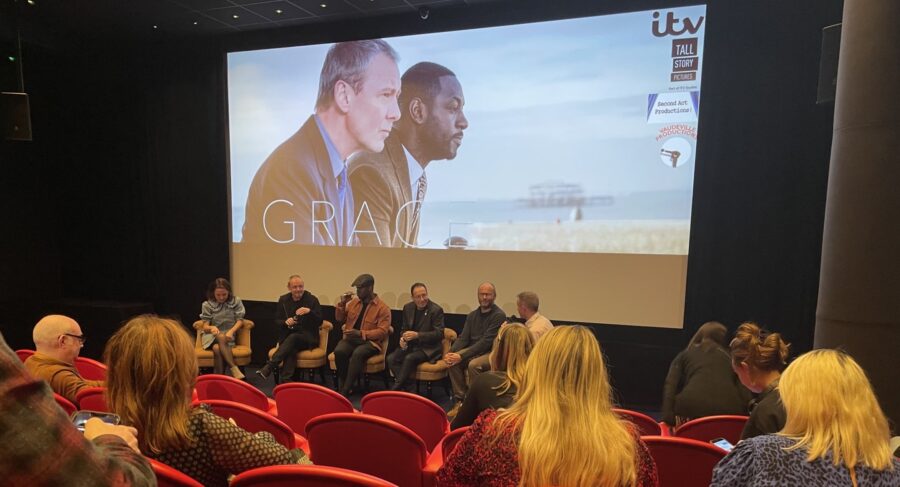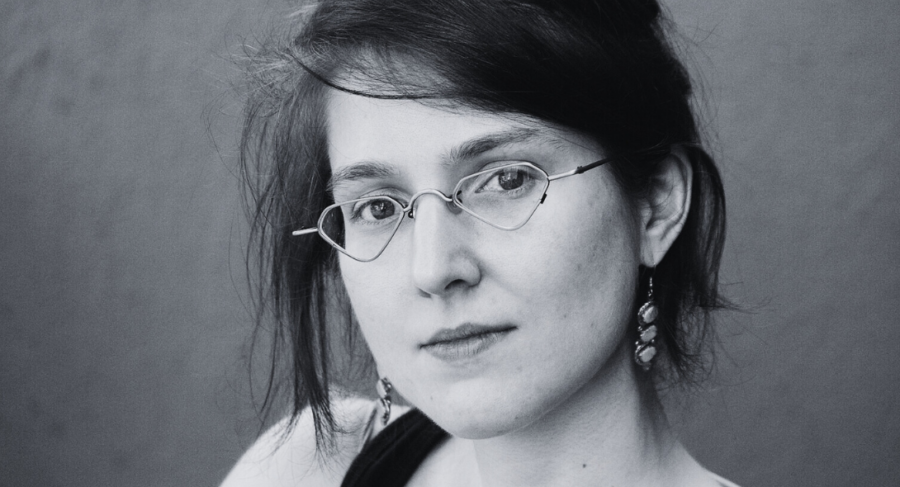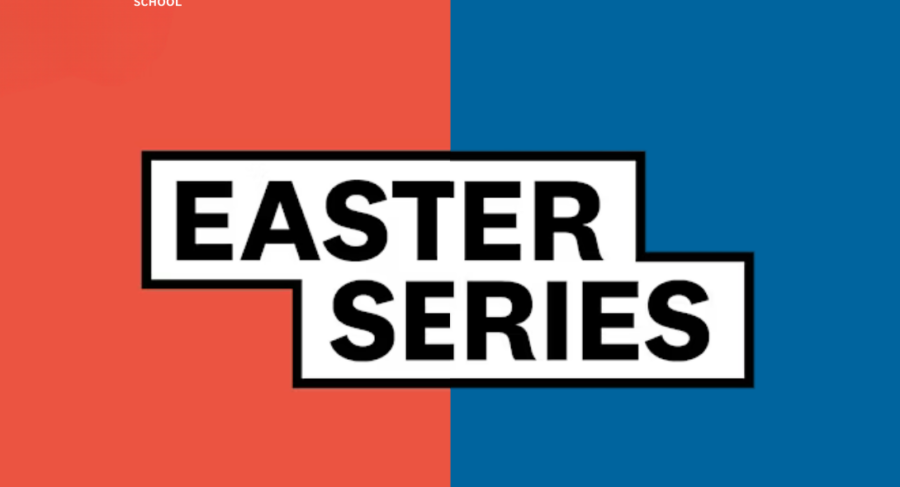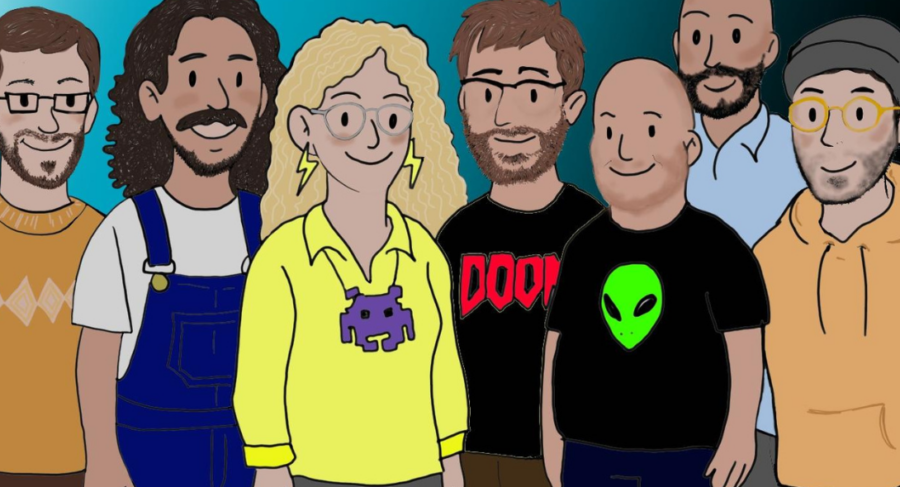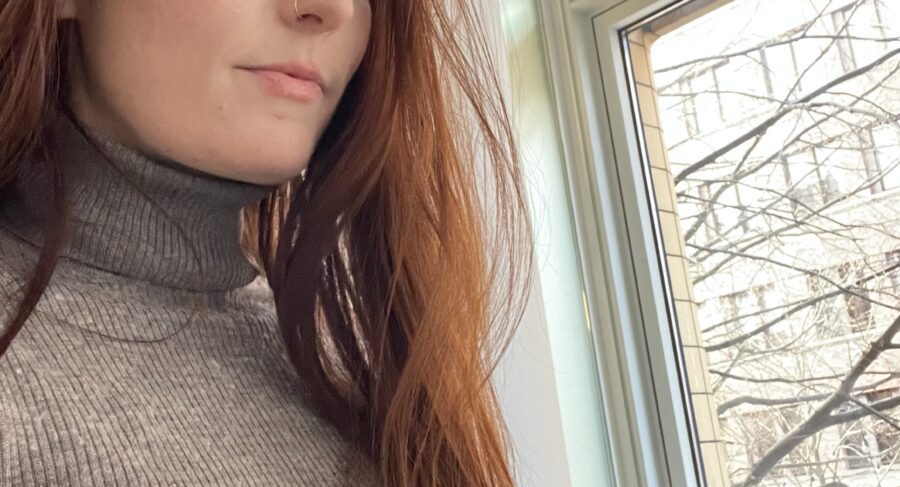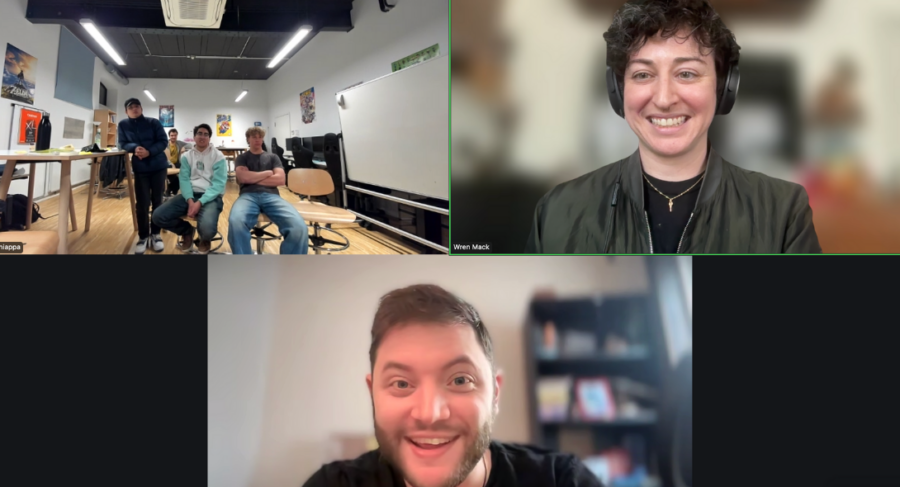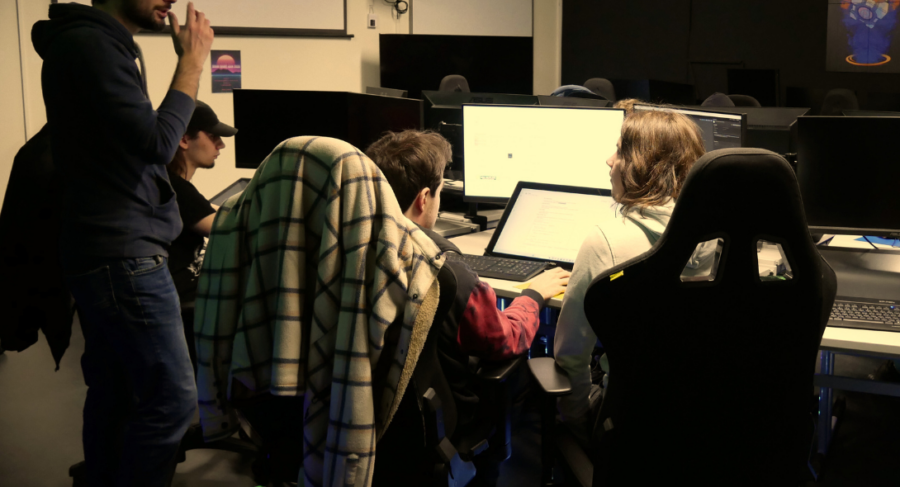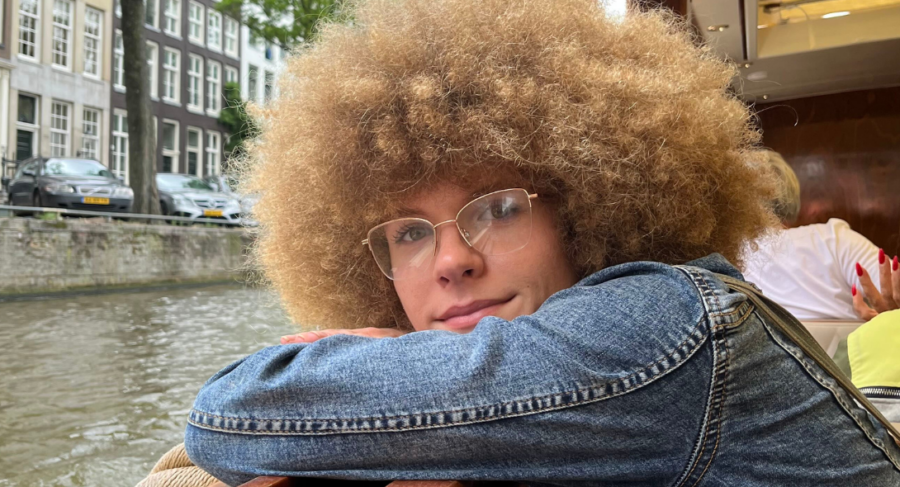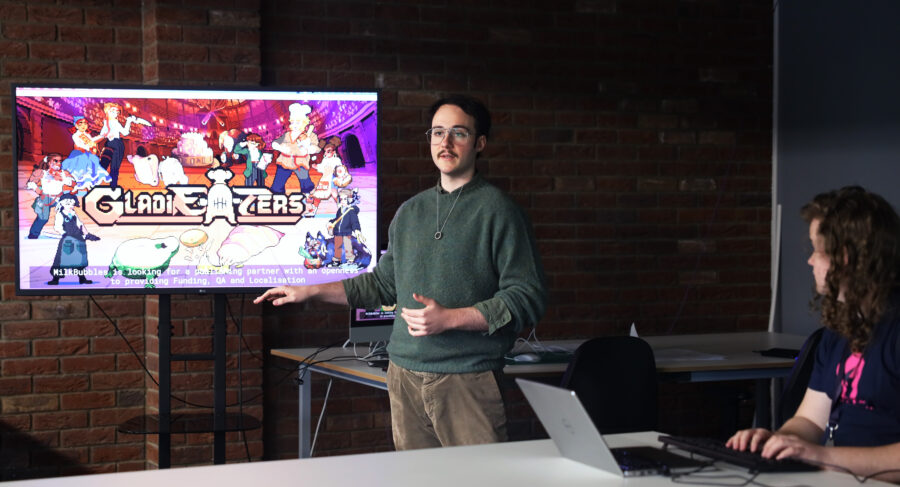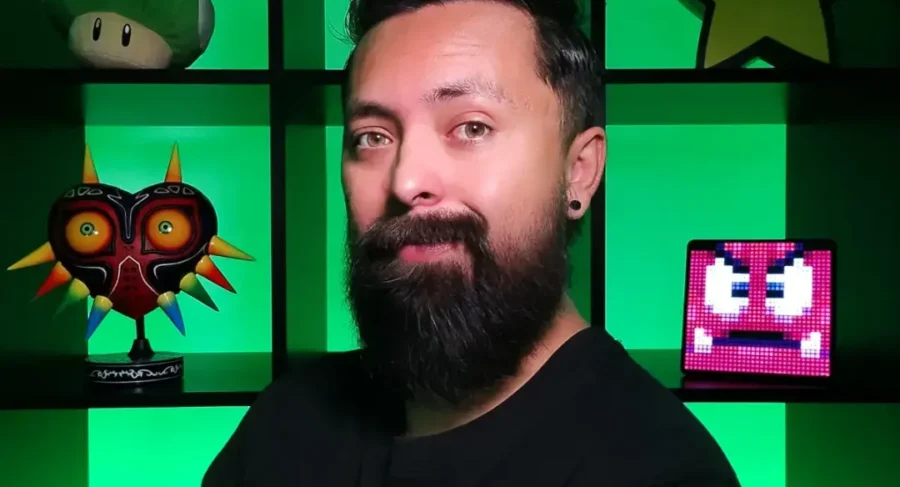Alumni spotlight: Emily Batey on working in distribution at Disney
By MetFilm School
07 April 2025
Emily Batey studied BA (Hons) Filmmaking at our Brighton campus. We caught up with Emily to see how things are going and were thrilled to hear that she is thriving in the world of theatrical sales and film distribution with Disney!
From her early passion for filmmaking to her pivotal role in co-founding the Women in Film Society at MetFilm School Brighton, Emily’s ambitions have evolved from her initial goal of becoming a director, to ultimately discovering her passion for distribution.
We sat down with Emily to discuss her experiences, the realities of working in distribution, and her aspirations for the future.
Can you give us an overview of your role at Disney and how you got there?
I’m in theatrical sales in the studios team, which involves organising distribution strategies in cinemas in the UK and Ireland.
Our UK team comprises eight people, and Martin manages both Northern Ireland and the Republic of Ireland. As a team, we handle all studios, from Marvel to Pixar. This means we look closely at their release strategies and collaborate with marketing to determine appropriate trailers for each film.
My days vary significantly—I might be involved in exhibitor screenings, researching market trends, analysing box office figures, or even working with the film ops team on certification with the BBFC. There’s always something different going on, which makes it very exciting but hard to summarise concisely.
One aspect I particularly enjoy is learning from industry veterans – some of my colleagues have been in the industry for thirty years or more. It’s incredible having such experienced mentors around. A lot of people, I’ve found, tend to swing between roles in distribution and exhibition, which is a good way to learn all the tips and tricks.
Could you describe what inspired you to co-found and chair the Women in Film Society during your time at MetFilm School? What are you most proud of from that experience?
At film school, my friend Lucy and I quickly noticed how male-dominated the environment was, particularly in classes involving camera work and lighting. Women in these classes, despite often being experienced and knowledgeable, were frequently underestimated or side-lined. This prompted us to create the Women in Film Society, a space that ensured women felt safe, heard, and valued.
Initially, we considered hosting feminist-themed film screenings but realised a more practical approach was needed. We became an intermediary for addressing issues that classmates might not feel comfortable confronting themselves.
The university was incredibly supportive, involving us in board meetings and genuinely listening to our advice. One of our key successes was the introduction of trigger warnings in lectures, something still implemented today. I receive messages from former classmates expressing gratitude for how safe and supported we helped them feel, which makes me feel so proud.
Initially, you focused on directing and documentary filmmaking. What inspired your shift to film distribution?
When I first attended film school, my main goal was directing. I still love creating films, but when I took on an internship at Bulldog Film Distribution, I discovered a side of the industry I hadn’t considered—film distribution. It’s a creative and strategic space that gives you control over marketing, trailer cutting, and promotional strategies.
At Bulldog, which is a small independent distributor, we handled everything ourselves, from creating trailers to marketing assets. It was incredibly grassroots, which allowed us to be really experimental. I realised how critical distribution is—filmmakers need to understand it to retain control and ensure their films reach the right audiences. This understanding is essential in an industry where filmmakers can easily lose autonomy over their projects.
My internship at Bulldog boosted my confidence and taught me resilience, especially in overcoming impostor syndrome. Learning from mistakes in that small, supportive environment helped prepare me immensely for bigger roles like Disney.
How rigorous was the interview process at Disney, and how did you prepare?
Interview processes, especially at large companies like Disney, are always challenging. You need to thoroughly understand your potential role and the industry itself.
That said, they don’t expect you to know everything, especially in entry-level positions. A lot of it comes down to demonstrating your genuine passion for film. During my interviews, I made sure to express how deeply I cared about cinema, which resonated with the interviewers. Passion goes a long way because people naturally gravitate towards others who are enthusiastic and genuinely love what they do.
Our team at Disney are all massive film fans, so we discuss films we’ve watched a lot. This is great for me, because I could happily watch films all day and then go to bed and dream about them!
What’s the most exciting aspect of your current role?
Mondays are when we process holdovers—managing cinema bookings for upcoming weeks. The day involves detailed analysis of weekend box-office data, reviewing booking sheets from various cinema clients, and negotiating screening schedules. It can be intense and demanding, but it’s exhilarating.
Another highlight is organising exhibitor screenings, where we creatively engage cinema exhibitors with themed events. This is great fun, because you get to be really experimental. The creativity involved in event planning and the strategic decision-making process make the role so varied and enjoyable.
For the Deadpool and Wolverine exhibitor screening, we had a replica made of Wade’s birthday cake, which appears in the trailer. None of us had actually watched the film at that point, so when we did, we found that the scene had been cut from the film! But the cake was amazing, anyway, and was a real talking point at the screening.
What advice would you give film students interested in film distribution, especially via non-traditional routes?
Networking is crucial. Attend as many industry events and film festivals as possible, and don’t hesitate to speak with filmmakers about how they distribute their films.
Use LinkedIn to find training schemes and internship opportunities. Also, resources like FDA reports provide invaluable insight into box-office trends and how distribution strategies work.
Knowing about all this as a filmmaker is incredibly important and empowering. Even a basic grasp of distribution can give filmmakers more autonomy and help them make smarter decisions about their projects.
What are your aspirations in film distribution going forward?
Ultimately, my passion lies in independent film distribution. Working for Disney is an incredible learning opportunity, especially managing big franchise films like Marvel’s, but I feel most excited by smaller, independent films that might struggle to find their audience.
My long-term aspiration is to launch my own distribution company, focusing particularly on supporting female filmmakers and pushing the smaller, often overlooked films. This area excites me because every film has its unique strategy, requiring constant creativity and innovation.
Currently, the industry faces a challenge where big franchise films attract massive audiences, but mid-level independent films often struggle. Supporting these overlooked films is a big motivation for me.
Emily’s journey into film distribution is a lesson in resilience, passion, and continuous learning. Her experiences underline the critical role that distribution plays in the film industry, especially in ensuring diverse stories reach their audiences.
With aspirations to support independent and female filmmakers, we’re so proud of Emily and her commitment to championing a vibrant, inclusive future for cinema. Emily, you’re great – and we wish you the very best of luck with your amazing career.
Interested in a career in Film?
Check out our courses or join us for an Open Day to take your first steps!


